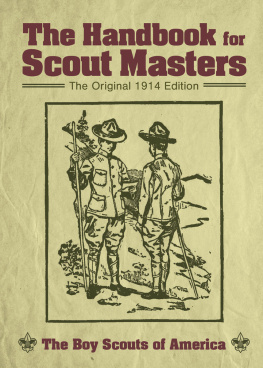Letterboxing with Kids
A Guide to Getting Started
By Lisa Cordeiro
LETTERBOXING WITH KIDS:
A GUIDE TO GETTING STARTED
Copyright: Lisa Cordeiro
Published: November 2013
Publisher: Lisa Cordeiro
Cover by: Lisa Cordeiro
The right of Lisa Cordeiro to be identified as author of this Work has been asserted by her in accordance with sections 77 and 78 of the Copyright, Designs and Patents Act 1988.
All rights reserved. No part of this publication may be reproduced, stored in retrieval system, copied in any form or by any means, electronic, mechanical, photocopying, recording or otherwise transmitted without written permission from the publisher. You must not circulate this book in any format.
This book is licensed for your personal enjoyment only. This ebook may not be resold or given away to other people. If you would like to share this book with another person, please purchase an additional copy for each recipient. If youre reading this book and did not purchase it, or it was not purchased for your use only, then please return to the retailer and purchase your own copy. Thank you for respecting the hard work of this author.
Find out more about the author and upcoming books online at www.lisacordeiro.com, facebook.com/lisacord, or @lisacord.
Authors Note
I wrote an article on letterboxing for Family Motor Coaching magazine to introduce families to this hobby. I wrote this guide to include more information and tips Ive learned while taking the kids out to search for clues.
Dedication
T his book is dedicated to my husband, children, nieces, and nephews, who have accompanied me on my letterbox hunts and hides (with varying levels of interest at times). :)
Table of Contents
Who Should Read this Book
A re you interested in:
- Going on adventures?
- Being outdoors?
- Discovering new places?
- Going on treasure hunts?
- Solving puzzles or riddles?
- Hiking?
- Keeping kids or small groups entertained?
- A new hobby that doesnt break the bank?
- An activity that doesnt need many supplies?
If you answered yes to any of the questions, letterboxing might be for you. Read on to find out more!
Introduction
O nce you try letterboxing, its hard not to get hooked. It combines the thrill of the hunt with a love of discovery of exploring new places, or rediscovering your own town. Its a low-key adventure, away from crowds and expensive attractions and encourages you to get outside and explore.
Its a journey that helps you to discover new places, similar to a treasure hunt. You only need a few supplies that are reasonably priced, so its easy to get started. Plus, there is so much variety with letterboxes hidden around the world; its an activity that you can try whenever you like.
I discovered several years ago when my kids were little and money was tight. Like many parents, I wanted to get the kids out of the house, have them play outside, instead of playing video games or watching TV. Over the years, my family and I have gone letterboxing in our area and during vacations. Its a quiet alternative to the pricey, crowded theme parks, and its helped us discover nature reservesand even good pizzawe might not have found on our own.
Im also a Girl Scout volunteer and my husband is a Boy Scout one. Weve taken our troops letterboxing from a young age, and the kids raved that it was one of their favorite activities. Best of all, trips were easy to organize, needed minimal supplies and expenditures, and varied in difficulty so we could pick up to match our age groups. Ive found it to be a great activity for groups as well as individuals, and I recommend it to parents, teachers, and group leaders.
While I took my troop of five-year-olds on an easy hunt for their first letterbox, as they grew older, they wanted more of a challenge. So we incorporated more difficult hunts, such as those that involve riddles. What kidor adult for that matterdoesnt enjoy unraveling the mystery in a good riddle?
I wrote this guide to share my tips and experiences with others looking for ways to get the kids outside to spend some quality time together trying a new activity. But I dont want to overwhelm you with too much information. This guide will cover the basics as well as some tips. If youre like to learn more about this fascinating and addictive hobby, see the resources at the end of this guide, which will help you connect to a wonderful community of letterboxers.
Hope you try letterboxing soon!
Lisa Cordeiro
What is Letterboxing
I f youre not familiar with letterboxing, you may be wondering what kind of activity has this strange name. Essentially, letterboxing involves clues to locate a hidden box known as a letterbox. The clues to find the letterbox may be written in different ways. Some people write a series of steps you follow sequentially. For example, When you reach the magnolia tree, turn right and take twenty steps toward the stream. Other clues involve puzzles or riddles. You may need to solve these problems to uncover the steps in order to follow in the clue. For example, one of my clues involves a hunt through a library where letterboxers must uncover letters that spell out an authors name, which they then must use to determine where the box is hidden.
Okay, so what exactly is a letterbox? A letterbox is typically a waterproof container that holds a small book known as a log book, stamp, stamp pad, and a pen.
Once you find the letterbox, take a moment to flip through the log book to see the entries of those who discovered the letterbox before you. Its exciting to see the various creative stamps and how far people have traveled. Stamp the logbook with your stamp and write down your letterboxing name, the date, where youre from, and anything else you want to add. Then you use the letterboxs stamp to mark your book with stamp, date, and location of your recent discovery.

Searching for letterboxes while hiking
Letterboxing Supplies
O ne of the best things about started letterboxing is you dont need to invest in much equipment. I started it when my kids were young and I was always looking out for free or inexpensive activities to try.
What do you need? Not much. The basics are: a small book where you will add stamps you find, a stamp to represent your letterboxing persona, a stamp pad, and a pen. The best partonce you have these basic low-cost tools to get started, letterboxing is free! Of course, if you travel to a particular location, youd incur transportation costs. But you dont have to buy any tech gadgets like a handheld GPS device used in geocaching.
What you need to get started:
- A blank journal or notebook
- A pen
- A stamp
- A stamp pad
Tip
You should consider a small durable case to carry and protect your letterboxing supplies. We store ours in an old metal lunchbox.

Some basic supplies include a stamp and a pen.
Journal
One of your tools is a letterboxing journal so you can keep track of the letterboxes you locate. Its best to have a book with unlined pages and with paper thats not too thin since youll be stamping the paper. A small journal is fine as most stamps are under a few inches. You can even make a journal yourself, if you wish. Since youll be carrying the journal around on your hikes, its best to find one easy to transport.

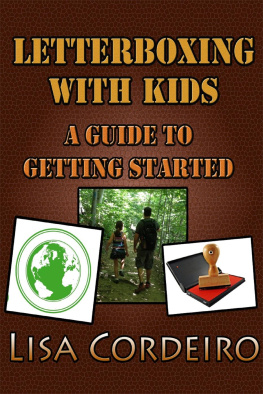
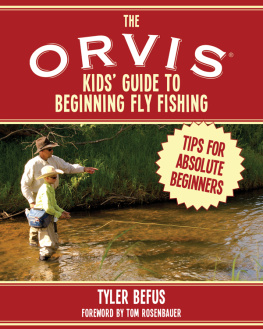
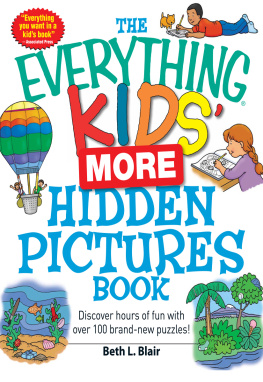
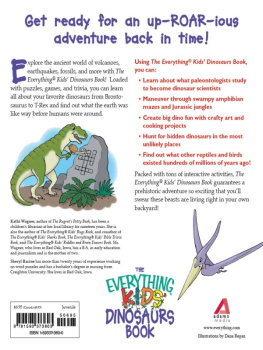
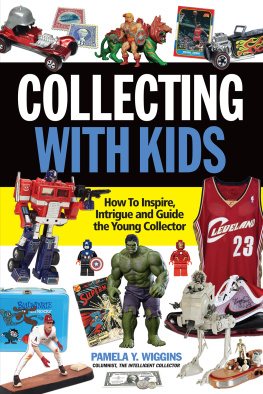





![Hughes - Frommers 500 places to take your kids before they grow up [2009]](/uploads/posts/book/182113/thumbs/hughes-frommer-s-500-places-to-take-your-kids.jpg)
